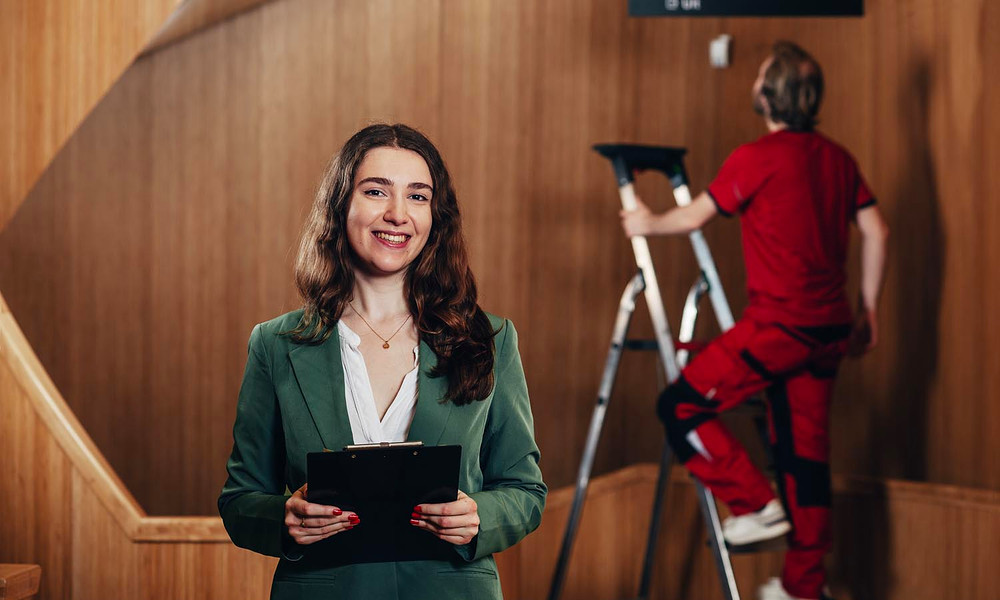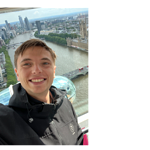Creating user experience in hospitality, health, and sustainability within organisations
Check whether you qualify- Bachelor
- Full-time
- 4 years
Creating user experience in hospitality, health, and sustainability within organisations
Check whether you qualify
Develop the skills to design and implement changes in services and space management, so that you can positively change people’s behaviour and make them feel at home.
Always wanted to work with people from different cultures? Are you interested in working abroad and does the idea of spending a year abroad during your studies excite you? International Facility Management is the programme for you!
Our programme is one of the two English taught FM programmes in the Netherlands which makes you a very sought after professional. Once you've completed your studies, you'll be ready to join the international workfield. Join us in Groningen!
What makes studying at Hanze UAS unique is that you will work on projects for real clients and contribute to concrete solutions for current issues impacting society. Below, you can find some examples of projects our students engage in.
Every person needs a pleasant, safe and well-equipped environment to live, work and relax in. At home you can create your own living environment, perfectly catered to your own needs. Most people, however, spend a great deal of their time in public spaces or buildings with other people: at work, at school, or at the local sports club. It’s a Facility Management Professional's job to organise good facilities in these places. In this programme you will learn all aspects of becoming a good facility manager. What are places where you could work? Think of an office complex, a campus, a holiday resort, a football stadium, a hospital, a conference centre, a festival site or an industrial estate.
International Facility Management (IFM) is a business management programme centred around people’s perception and experience of organisations and public spaces. We generally work with, and in professional practice provide our students with, real-world learning opportunities. You are taught by professionals in the field, go on field trips (for example to the hospital) and carry out real-life projects. Some of these projects will take place in our living labs, where you will work with other students, lecturer-researchers and entrepreneurs to develop solutions for spatial design problems. For example, first-year students are instructed to measure the indoor climate of our classrooms. The results of these measurements are actually used to improve the indoor climate, helping our lecturers and students to perform more effectively.
The first year is an introduction to Facility Management. You learn how to develop a sustainable and innovative work environment. Furthermore, you gain an understanding of how FM-professionals analyse and improve the effectiveness, efficiency and service level of a company. You also learn to manage, structure and improve services from a customer-oriented perspective. This includes Human Resource Management.
In the second year, you focus on the themes Service Innovation and Spaces, and immerse yourself in projects related to hospitality, health or sustainability. You design and work out your own service by means of Design Thinking and Facility Management Canvas and expand your knowledge of space management.
In the third year you are going to study abroad (to do a minor) at a partner university around the world, for example in Austria, France, Finland, Spain, Turkey, the United States, Canada, Indonesia or other countries in Asia. However, if you are from outside of the Netherlands, you could also do your minor here. You also go on a five-month internship as an assistant to the manager in a company, to further increase your knowledge, skills and competencies as a developing FM professional.
The fourth year starts with a semester called Experience, in which you focus on the experience of people in spaces. You will also start preparing for your graduation project. You will finalise your study with an assignment within an organisation of your choice. You will analyse a project and give advice or make a design.
Curious about the courses you'll take each year? Check out the full overview here!
After successful completion of the International Facility Management programme, you can continue with a postgraduate study and pursue a master's degree.
Hanze UAS offers multiple master's programmes that would be a good follow-up to your bachelor's degree in Facility Management. These are the following master's degrees (NL/EN):
After graduation you will be able to find a job at a management level. The most popular jobs include:
Curious about our students' opinions about the programme and how it compares to similar programmes offered by other universities of applied sciences? Check out the facts and figures on Studiekeuze123.nl
Studiekeuze123 collects facts and figures about all majors/variants of this study programme. The facts and figures displayed, therefore, form an overall picture of these majors/variants.


Student IFM